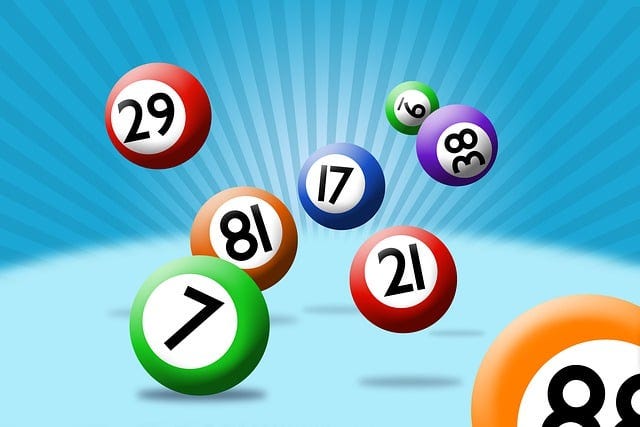What if Black people got one free lottery ticket every Juneteenth?
Larenz Tate's "Bronzeville" podcast educates listeners on African-Americans' contribution to the lottery system

When I walked to the front desk and put my coat in a nearby closet, I noticed the Christmas card. The two nurses in our claims department bought a scratch-off lottery ticket for the whole floor. I thought this was one of the coolest gifts I’d ever received. Secret Santa could never top this. Whether I won or lost, neither of the nurses cared. They didn’t even ask for the results as we all individually scratched our tickets throughout the day.
It took me some time to finally scratch mine off because I was wrestling with an 81-line switchboard phone. I’m fairly certain I didn’t win any money, primarily because I assume I would’ve recalled that. Still, I took note of the simplest gift to give a co-worker.
ADVERTISEMENT ~ Amazon
As an Amazon affiliate, I earn a percentage from purchases with my referral links. I know some consumers are choosing to boycott Amazon for its DEI removal. However, after thinking about this thoroughly, I want to continue promoting cool products from small businesses, women-owned businesses and (specifically) Black-owned businesses who still feature their items on Amazon. As of the first date of Black History Month 2025, each new post will ALWAYS include a MINIMUM of one product sold by a Black-owned business. (I have visited the seller’s official site to verify that Amazon Black-owned logo.) I am (slowly) doing this with older, popular posts too. If you still choose to boycott, I 100% respect that decision.

And after recently listening to Larenz Tate’s 2021 interview with longtime journalist Ed Gordon regarding his two-season podcast “Bronzeville” — specifically how African-Americans had a business called “The Numbers” (or “Policy”), which later became the Illinois Lottery — I revisited my memory of that Christmas present.
Why Larenz Tate’s “Bronzeville” podcast is so significant
Although K-12 history books don’t talk much about “the Numbers” — rightfully so considering it’s basically encouraging gambling — the “Bronzeville” podcast reminded listeners of how Black people influenced the economy in the 1800s. (OK, technically, four centuries, but I’m speaking post-Juneteenth).
My maternal grandmother was a hardcore lottery ticket buyer. But up until that Christmas gift at my receptionist job in 2004, I was pretty uninterested in lottery tickets. Even at my first college, which had a native-owned casino nearby, I was too cheap to gamble. I lost $10 after watching a live boxing match, and I was done with gambling within minutes.
I listened to “Bronzeville” primarily because I used to work for a historically Black newspaper in that neighborhood four years after the receptionist job, my favorite vegan restaurant was located in Bronzeville Chicago, and I wanted to support anything the Tate brothers, Laurence Fishburne, Wood Harris and Tika Sumpter were affiliated with. But even after listening to both podcast seasons twice, I didn’t really pay attention to the historical merit of the lottery industry until Tate explained it in more detail with legendary journalist Ed Gordon. I just wasn’t that intrigued by the “Policy” business with a Black man named Sam Young, who arrived in Chicago from New Orleans in 1885.
Why Sam Young contributed to today’s lottery system
According to WTTW, the Chicago Daily News estimated that $18 million a year was being bet on Chicago’s policy wheels. The Negro in Illinois Writers Project estimated that on the South Side of Chicago, there were 4,200 policy stations and 100K people played on the West and South Sides combined. While it was putting money in Black homes (if you won at least), it was still illegal — until it wasn’t. Policy came to an end with the launch of the Illinois State Lottery in 1974. And once it became big business, I didn’t really hear much about how Black people benefited from this.
Juneteenth lottery tickets versus reparations
The Census Bureau, our driver’s license system and even mail-in voting can identify each legal citizen in the United States (regardless of what asinine ramble Trump says). I started wondering, “What if, on Juneteenth, every Black person within these systems was entitled to one FREE annual lottery ticket?”
ADVERTISEMENT ~ Amazon
As an Amazon affiliate, I earn a percentage for every purchase with my referral link.

Evanston’s Reparations Committee kept its word for the Illinois town’s Local Reparations Restorative Housing Program. I thought that was a win. But then 110-year-old Viola Fletcher and 109-year-old Lessie Benningfield Randle, whose families had to flee during the Tulsa Race Riot (Black Wall Street), were rejected for any form of reparations. That latter lawsuit was a perfect example of those who lived through what happened and deserve compensation. But would the lottery system be another one?



